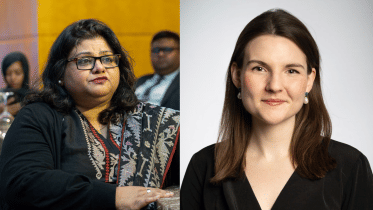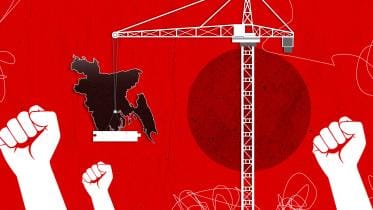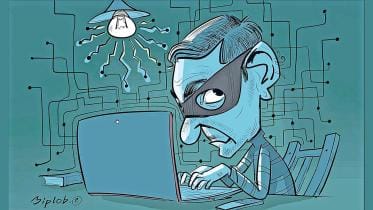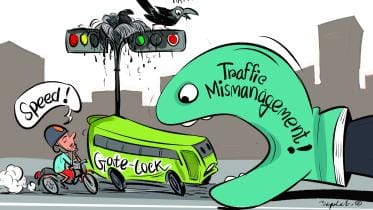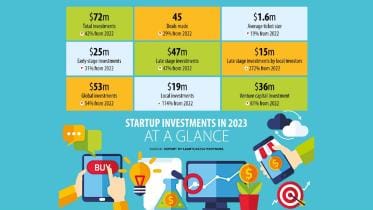The skills premium: how AI became essential for marketers
The marketing world is undergoing a seismic transformation. As generative artificial intelligence (gen AI) matures from a technical novelty into a strategic necessity, marketing professionals are being forced to adapt at a pace unprecedented in recent memory. No longer confined to the realms of data science or IT, AI has become central to the everyday operations of marketing departments, not just enhancing productivity, but fundamentally reshaping the structure, skills, and strategy of marketing teams worldwide.
7 May 2025, 06:11 AM
The colonial legacy in our digital infrastructure
How Bangladesh and the Global South remain trapped in digital dependence
10 April 2025, 07:00 AM
How to build a positive work culture in your office
In today's competitive business landscape, fostering a positive work culture, boosting employee morale, and enhancing team cohesion are not just desirable—they are essential for organisational success. Companies that prioritise these elements often experience increased productivity, reduced turnover, and a more engaged workforce.
20 March 2025, 04:28 AM
Inside Uber’s operations in Bangladesh: A chat with Nasheed Ferdous Kamal
The Daily Star sat down with Nasheed Ferdous Kamal, Country Head, Uber Bangladesh, and Amy Price, Director - Head of Tech, Media and Telecoms Practice at Public First, to discuss Uber’s economic and social impact, responses to safety challenges and debates facing the gig economy, and the future of ride-sharing in Bangladesh.
4 March 2025, 04:20 AM
Lifelong learning: Staying relevant in the age of AI
The rise of AI isn’t a distant phenomenon confined to Silicon Valley boardrooms; it’s here, woven into the fabric of Bangladesh’s economy. Jobs once considered secure are evolving—or disappearing—while new roles, unimaginable a decade ago, are emerging at breakneck speed.
11 February 2025, 04:50 AM
Will the home adviser go big or go home?
Post-August 5, muggers, robbers, and criminals run rampant in the city as the law and order situation has fallen to an all-time low.
27 January 2025, 02:00 AM
BTRC's draft satellite internet guideline risks becoming a digital gatekeeper
This draft policy is hiding a central duality in plain sight: Bangladesh is eager to welcome cutting-edge satellite technology, yet appears equally intent on tightly controlling its operation.
30 October 2024, 12:31 PM
Rebranding and rebuilding Bangladesh
Now that the dust is starting to settle down, there are growing calls for reforms across the nation.
6 September 2024, 05:00 AM
5 signs of toxic leadership in the workplace
Some leaders exhibit toxic traits that can undermine morale, stifle creativity, and create a culture of fear and resentment. Understanding the signs of toxic leadership is the first step towards advocating for change.
30 July 2024, 03:12 AM
Right to access the internet is a human right
A world without internet is unimaginable in this age and time.
18 July 2024, 07:08 AM
The future of leadership is kindness
In recent years, the business world has seen a paradigm shift in the qualities we value in leaders. Long gone are the days when assertiveness and strength were seen as the sole indicators of effective leadership.
18 July 2024, 04:13 AM
How to not handle a crisis communication: A lesson from Coca-Cola
Coca-Cola's botched ad campaign highlights the pitfalls of crisis communication.
10 June 2024, 10:53 AM
Government mishandling of personal data: Where does it end?
Are these incidents of data breach and data leaks not contradictory to the very image of the smart, digital, developed Bangladesh that they are desperately trying to portray or advertise?
25 May 2024, 13:00 PM
From fringe hobby to national pride
For years, gaming in Bangladesh was seen as a waste of time -- often dismissed as a frivolous activity or a distraction from more “serious” pursuits. Traditional societal norms placed little value on gaming, perceiving it as an endeavour devoid of any real-world benefits.
17 May 2024, 18:00 PM
Regulating Dhaka traffic: Are ‘gate lock’ and speed caps all that it takes?
Unless things change on the street level, no rules or infrastructure can efficiently resolve Dhaka's traffic gridlock.
15 May 2024, 01:00 AM
The creative industry was already suffering. Then came AI
The rapid advancement in the field of AI, particularly in the creative sector, raises a multitude of questions Is AI truly more creative than humans? What are the ethical implications of AI-generated art that imitates existing styles? How will the rise of AI impact the job market for creative professionals?
14 May 2024, 03:54 AM
How to effectively deal with job searching fatigue
Application fatigue sets in when the initial enthusiasm for job searching gives way to the despair of repeated rejections. This emotional toll not only saps one's energy but can also lead to a reluctance to apply for new positions, for fear of facing further disappointment.
27 February 2024, 04:37 AM
Startups defied economic downturn in 2023: study
The startup ecosystem in Bangladesh showcased a notable degree of resilience and adaptability in 2023, when economic uncertainty stemming from geopolitical tensions spread worldwide.
24 January 2024, 18:00 PM
Xiaomi Pad 6: Balancing price and performance
Finding a device that balances performance, aesthetics, and price can be a challenge in today's saturated gadget market. Enter the Xiaomi Pad 6: a tablet that not only promises top-tier specs but does so without burning a hole in your pocket. Join us as we delve deeper into what makes the Pad 6 stand out in a crowded field.
29 October 2023, 10:03 AM
Who watches the watchmen?
The meek responses to cyberattacks showcase how authorities fail to comprehend the dangers of these security breaches.
14 July 2023, 07:00 AM















